The Devil’s Delusion: Atheism and its Scientific Pretensions
£8.50
Militant atheism is on the rise. Prominent thinkers including Richard Dawkins, Sam Harris, Daniel Dennett, and Christopher Hitchens have published best-selling books denigrating religious belief. And these authors are merely the leading edge of a larger movement that includes much of the scientific community. In response, mathematician David Berlinski, himself a secular Jew, delivers a biting defense of religious thought. The Devil’s Delusion is a brilliant, incisive, and funny book that explores the limits of science and the pretensions of those who insist it is the ultimate touchstone for understanding our world.
Read more
Additional information
| Publisher | Basic Books, Reprint edition (26 Aug. 2009) |
|---|---|
| Language | English |
| File size | 1395 KB |
| Text-to-Speech | Enabled |
| Screen Reader | Supported |
| Enhanced typesetting | Enabled |
| X-Ray | Enabled |
| Word Wise | Enabled |
| Sticky notes | On Kindle Scribe |
| Print length | 258 pages |

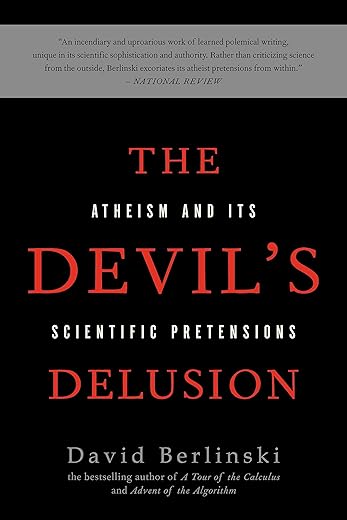




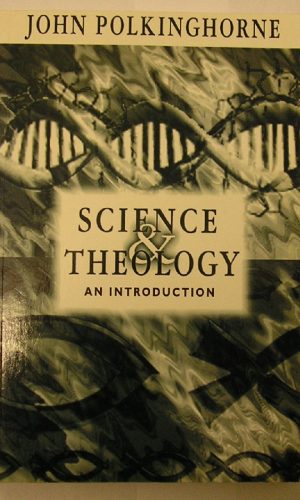
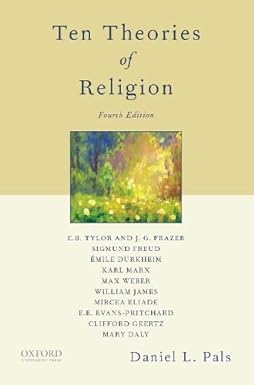
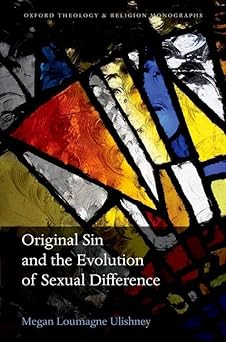
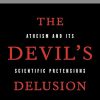
by Chris Thorsen
David Berlinski is, in my opinion, an author that dares to state a negative opinion about the evolution hypothesis. The is not correct in society today. He is placing himself in a very awkward position as regards receiving respect in any circles. It is outright social suicide to stand up with opinions towards evolution in a workplace or among friends today. Goodness knows what it means for the authors reputation as a scientist. But just that makes it worth reading. He does not seem to have anything to gain by his position. They say that being brutally honest is not being honest, just brutal. And so Mr. Berlinski is honest and many times brutal. While he gets the ball mostly, at times he tackles the ball, the player and the audience as well. Really, he is quite haughty at times-something he complains that is a problem with the scientific society today. I agree. But at the same time I perceive him as not a tidbit more haughty than those favouring evolution. With such an important subject where most people are just lulled into a default opinion by a media ever too happy to recite the majority, I think his voice is important. Read it and see if evolution is standing rock solid as a theory – my conclusion is that it is a hypothesis…at best. A thank you to Mr. Berlinski for being daring enough to say what is very unpopular. And for those who think he is dogmatic in the question about whether there is a Creator- you will be relieved.
by Zoe
Overall, it has shown me that scientific atheism abides by the same structure of principles that theists do; Christians place their faith in God, Atheist place their faith in nature. They attribute all they are, in the physical sense, to nature and see no need to look beyond the physical despite the fact
that science adds little to our human experience which is characterised by a true longing for spiritual fulfilment.
To whoever is reading this:
Do you that you were made to be in right relationship with God?
What happened to this relationship is that when we chose our way instead of Gods way, we were separated from him by our sin.
The most important thing you could ever know is that God loved the world so much, he loved YOU that he came to the world as Jesus. Jesus lived the perfect life you and I couldn’t live, he died on the cross to pay the FULL payment for the worlds sin and rose from the dead on the 3rd day pricing he was the true Son of God.
See, God has made a way for your relationship with him to be restored.
If you believe in Jesus by placing you faith in him you will be saved from sin and it’s consequence.
Everyone who turns to God in genuine repentance (which means turning to Christ and away from sin your life) and faith will be saved.
To talk more, email me: ps621@outlook.com
by P. M. Fernandez
There were certain lecturers at university – Hans Kornberg springs to mind – whose lectures nobody would miss. It wasn’t because they were necessarily the crucially important courses. It was because there was something about the style of the lecturer – his or her humour, perhaps, or delivery – which captivated the undergraduate audience and held it until the end of the course.
Reading this book by Berlinski reminded me of some of those lecturers. Various things about it were captivating. The layers of meaning that can be found in so many of the sentences; the deft way in which opposing opinions are dismantled; the shocking mild political incorrectnesses; the carefully-measured putdowns; the rhetorical interaction with opponents and readers.
Berlinski is writing a book in defence of belief in a god. Nothing unusual about that – Dawkins’ book “The God Delusion”, and similar ones, have sparked a whole publishing industry in response, many of which I’ve already reviewed on Amazon. What is most unusual about this book is that Berlinski is not a religious believer – and yet he is quite adamant that belief in God is not unreasonable. Furthermore, he is substantially better informed – biblically, philosophically, scientifically – than Dawkins, Hitchens or Harris.
He makes his case persuasively. For example, in response to the insistence that “miracles don’t happen” by anti-theists, he points out that whilst we can understand the chemical process by which the eye “sees” something, we don’t have a clue about what perception really is, and just because it is part of our everyday experience doesn’t mean that it is inappropriate to describe it as a miracle. In response to the dogmatic insistence that we are no more than animals, he points out the fact that if that is what we are in biological terms, then it simply demonstrates that biology is telling us nothing useful about what it means to be human at all. He demonstrates that the theories that supposedly prove that God isn’t necessary rarely do what they set out to, and say more about the presuppositions of the proponent than about the nature of the universe.
As I read the book, I found myself increasingly puzzled as to why, given his dissatisfaction with arguments against the existence of God, he should not believe in God himself. The dedication – to his father, who was lost in Auschwitz – perhaps provides one clue, and another big clue is provided in the last chapter – “The Cardinal and his Cathedral.” Here he writes movingly of his life in science, and his hope – perhaps a little forlorn now – that despite its failures, science will one day provide a coherent means of understanding the world.
Two quibbles. The first is that the book could really have done with footnotes or endnotes for the many references. The second is that the odd provocative piece of political incorrectness could have been avoided – not because it does any harm in itself, but because it provides his opponents with a red herring card to play against him (to mix metaphors). But the bottom line is that this is an excellent, highly quotable book, which I intend to pass on to many other thoughtful people.